Home, truly: The place that nurtured me for abroad
Overseas Singaporeans carry fond memories of their time in the Republic. The Straits Times spoke to some of the youngsters based abroad on how their stay here prepared them for the stint abroad, for this special report.
Sign up now: Get ST's newsletters delivered to your inbox
Kirstin Yip
Home really has been the whole world for siblings, Rachel and Brendan Leng.
Now 27 and 23, they left Singapore when they were barely six and two years old.
After their father got a position in Shanghai, they spent over a decade growing up in China's biggest city.
At 19, Rachel followed her heart to Duke University in the United States. She took a double degree in Public Policy and East Asian and Middle Eastern studies, with a minor in Economics.
Brendan, in the meantime, had moved back to Singapore with his parents to finish his International Baccalaureate and serve his National Service. He is now studying Medicine in the University of Birmingham in the United Kingdom.
After graduating from Duke, Rachel returned to Singapore where she took part in Miss Singapore World 2013. Despite having no prior pageant experience, she managed to snag 'Second Runner-up' and 'Miss Beauty with a Purpose'.
After graduating from Duke, Rachel returned to Singapore where she took part in Miss Singapore World 2013. Despite having no prior pageant experience, she managed to snag 'Second Runner-up' and 'Miss Beauty with a Purpose'.
The 23-year-old then headed back to the United States to complete her Masters' degree in East Asian Studies at Harvard University. She worked for a year in South Korea and is now working at a private equity fund in Japan.
Though they spent many years abroad, the duo have always held Singapore close to their hearts.
Though they spent many years abroad, the duo have always held Singapore close to their hearts.
"Even though we lived abroad, our parents really taught us it was important to stay rooted to being Singaporean," Rachel explains.
The family always made it a point to return home for Chinese New Year, summer break and Christmas.
Brendan adds, "They didn't want us to lose the Singaporean culture as well as our sense of belonging here."
Brendan adds, "They didn't want us to lose the Singaporean culture as well as our sense of belonging here."
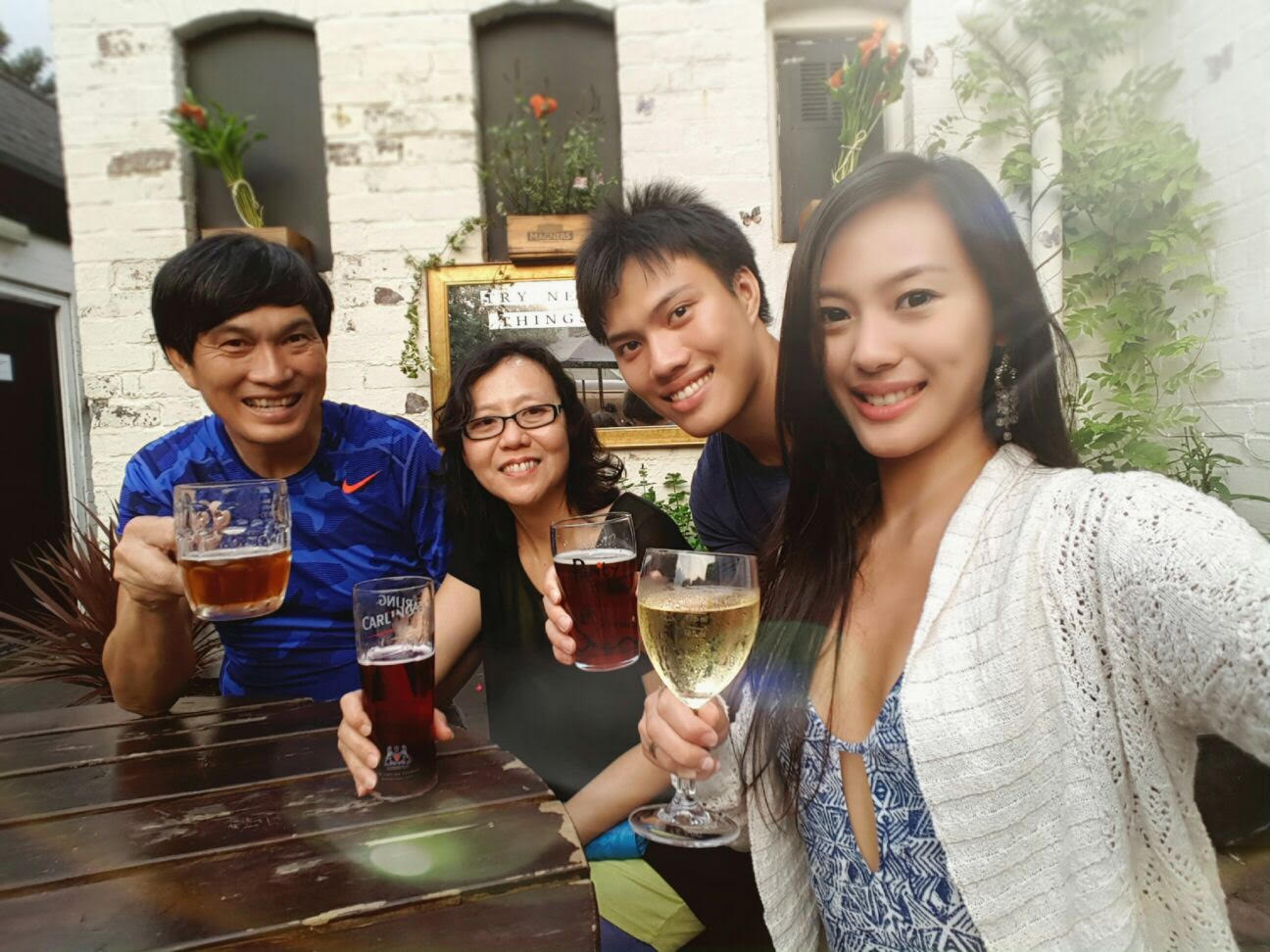
Like many other Singaporeans living abroad alone, they miss their family the most.
"It's always the first six months or so (in a new country) that is the most difficult," Rachel says. "There isn't always someone to come back to. Your parents aren't waiting for you when you come back from work or after school."
Despite all the challenges that come with living overseas, both Rachel and Brendan have never let it stop them from exploring the globe.
Despite all the challenges that come with living overseas, both Rachel and Brendan have never let it stop them from exploring the globe.
When asked what drives her to keep moving to different countries, Rachel tells me: "A lot of it is curiosity. I love learning about different peoples, cultures and ways of life."
She believes that Singapore's multinational and multi-cultural society also prepared her for life overseas.
She believes that Singapore's multinational and multi-cultural society also prepared her for life overseas.
She says: "Having that base and then going abroad really brings you a different kind of mindset, perspective and insight."
For Brendan, it was the army that prepared him. He cites the discipline instilled in him that made him organised, punctual and on the ball while at university.
For Brendan, it was the army that prepared him. He cites the discipline instilled in him that made him organised, punctual and on the ball while at university.
Now in the third year of his studies, Brendan spends a lot of time talking to his patients, who sometimes still give him a culture shock.
"Some will refer to their hearts as tickers and when I first heard that term I was like, 'what are they talking about?' That was eye-opening for me. I had to find ways to approach it to not look completely unaware of their culture."
Living abroad has also taught many valuable lessons. Rachel tells me: "As a young woman, I've learned a lot about believing in yourself more and being more confident. Starting a new job is one of the most stressful things in life. Moving to a new country where you don't know anyone is also incredibly stressful.
Living abroad has also taught many valuable lessons. Rachel tells me: "As a young woman, I've learned a lot about believing in yourself more and being more confident. Starting a new job is one of the most stressful things in life. Moving to a new country where you don't know anyone is also incredibly stressful.
"Having to do that multiple times and to know that you can do it really gives you a lot of confidence when trying out new things."
She enjoys being able to try many things, like being in Miss Singapore World or working in finance despite having no prior background in either. She encourages everyone to try living abroad to experience what it is like.
She enjoys being able to try many things, like being in Miss Singapore World or working in finance despite having no prior background in either. She encourages everyone to try living abroad to experience what it is like.
"You never know how much you can actually achieve. And if you don't achieve, it doesn't matter. Everyone fails. But if you do achieve, you surprise even yourself."
Brendan says his biggest takeaway from life abroad is the "adaptability to integrate into a new environment and the ability to establish good relationships regardless of differences in cultures."
Brendan says his biggest takeaway from life abroad is the "adaptability to integrate into a new environment and the ability to establish good relationships regardless of differences in cultures."

When asked about advice for Singaporeans considering life overseas, Rachel suggests: "Keep an open mind. Try and connect with the local community and customs and that will open up a lot of opportunities for you to meet people. You will learn a lot about yourself and others."
Rachel says that although she is keeping her options open, she would like to return permanently to Singapore in the future.
Rachel says that although she is keeping her options open, she would like to return permanently to Singapore in the future.
She has considered getting into politics or working in the government.
"Ultimately, I still identify as Singaporean and Singapore still has a very warm place in my heart, as a place that I'll always call home.
"I hope to be able to take all my experiences abroad and turn them into something positive for the Singapore society."
Brendan also sees himself returning to Singapore to continue practicing medicine.
Brendan also sees himself returning to Singapore to continue practicing medicine.
"I still feel most comfortable, most at home in Singapore."
***
Here's a look at the conversations we had with other Singaporean youth living abroad.
UNITED STATES

Fang Shuo exploring the terrain in the United States.
Deng Fang Shuo
Deng Fang Shuo, 21
Currently studying: Computer Science, University of California, Berkeley
Q How did Singapore prepare you for the United States?
A This might be a bit of a clichéd answer but honestly, I feel like the Singapore education was what prepared me most for college in America because of how rigorous it is.
And I don't just mean rigorous as in academic preparation, although that definitely helped, but more in terms of inculcating the right habits and routines that I needed to succeed in college.
For example, studying for A-levels you learned things like 'ok I need to go for consultations if I can't do a problem' or 'ok, I need to finish this number of past year papers', whereas for some of my peers here, they honestly seem surprised when I bring these things up when we talk about preparing for a mid-term.
Q What do you miss the most about Singapore?
A A lot of my friends tell me they miss the food, but honestly, I don't crave Singaporean food too much just because there is so much variety here in the US.
However, I definitely miss the relationships - my family, my friends - the people I've known basically all my life.
And it's not that I miss them because I'm in a foreign country (this is what we signed up for after all), but rather because you know that once you leave things will be different.
Everyone has their own activities, their own experiences, and everyone's life ends up going in different directions - things just aren't the same anymore.
And so it's a little sad, I guess, but it just means we all have to make that little bit more effort if we want to keep these relationships alive.
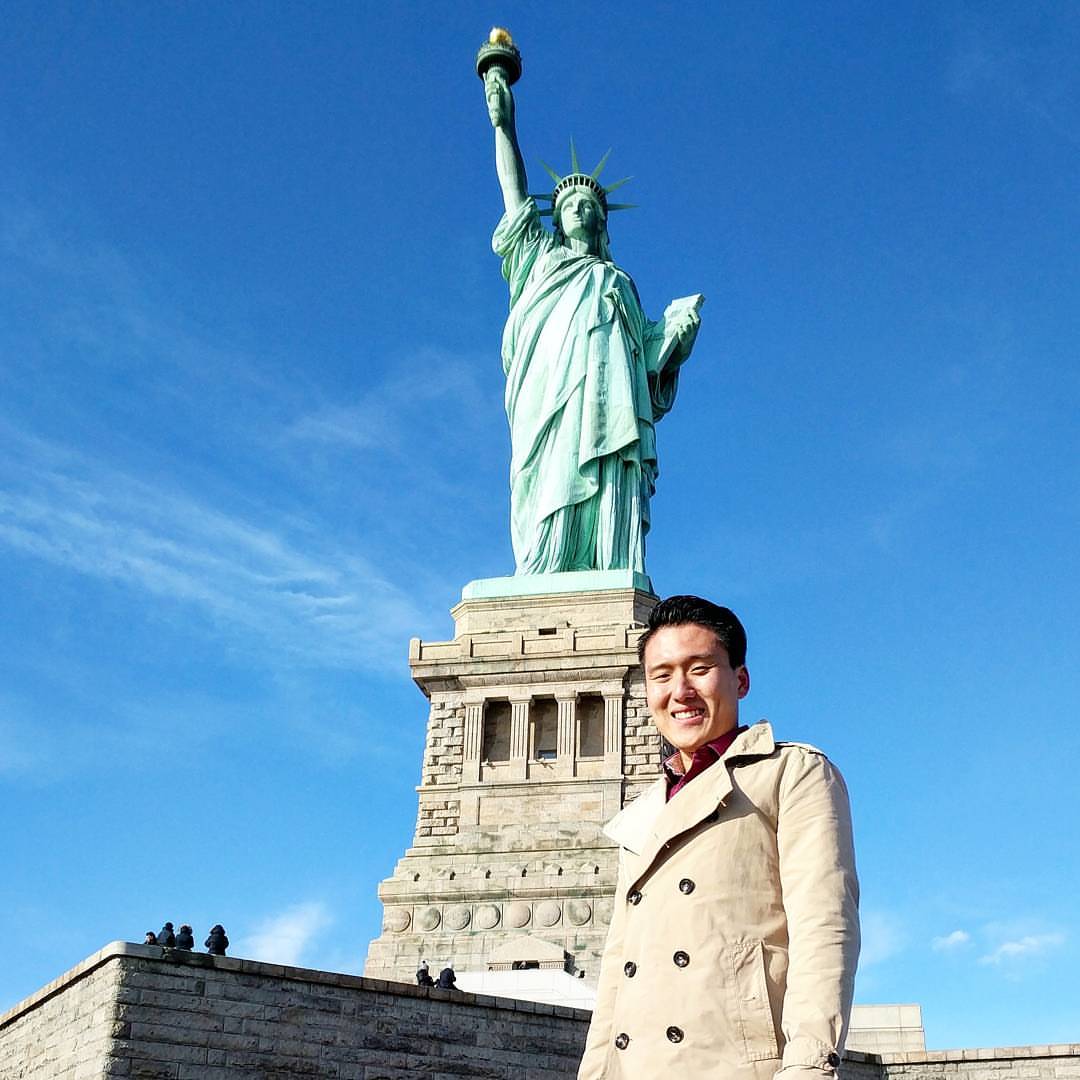
Peicun at Lake Tahoe, in the Sierra Nevada Mountains, United States.
Jiang Peicun
Jiang Peicun, 23
Symbolic Systems - Artificial Intelligence, Stanford University
Q How did Singapore prepare you for the United States?
A Singapore is a convergence of Asian and Western forces. The bilingual and multi-cultural context I grew up in has prepared me well on embracing the global culture while staying rooted to my Chinese identity - something profound, intimate, and which I hold close to my heart.
Besides, a sound humanities education under some of the best teachers I've encountered has prepared me well - emotionally, psychologically, and philosophically - to respond to the range of feelings I experience living overseas, be it estrangement or camaraderie, hope or despair, love or loss.
There is a famous line in the play, The History Boys, where the literature teacher, Hector, says about poetry, "learn it now, know it now and you will understand it…And then (when things happen) you will have the antidote ready! Grief. Happiness. Even when you're dying. We're making your deathbeds here, boys."
Q What do you miss the most about Singapore?
A I miss my friends from primary school. I went to Admiralty Primary School in 2006, and I've known them for 11 years now.
There is something special about bonds developed over such a relatively long time, especially in one's early years.
I've had some of the most fun times with them, be it in feasting, playing, or unabashedly sharing moments of joy while watching football.
CHINA
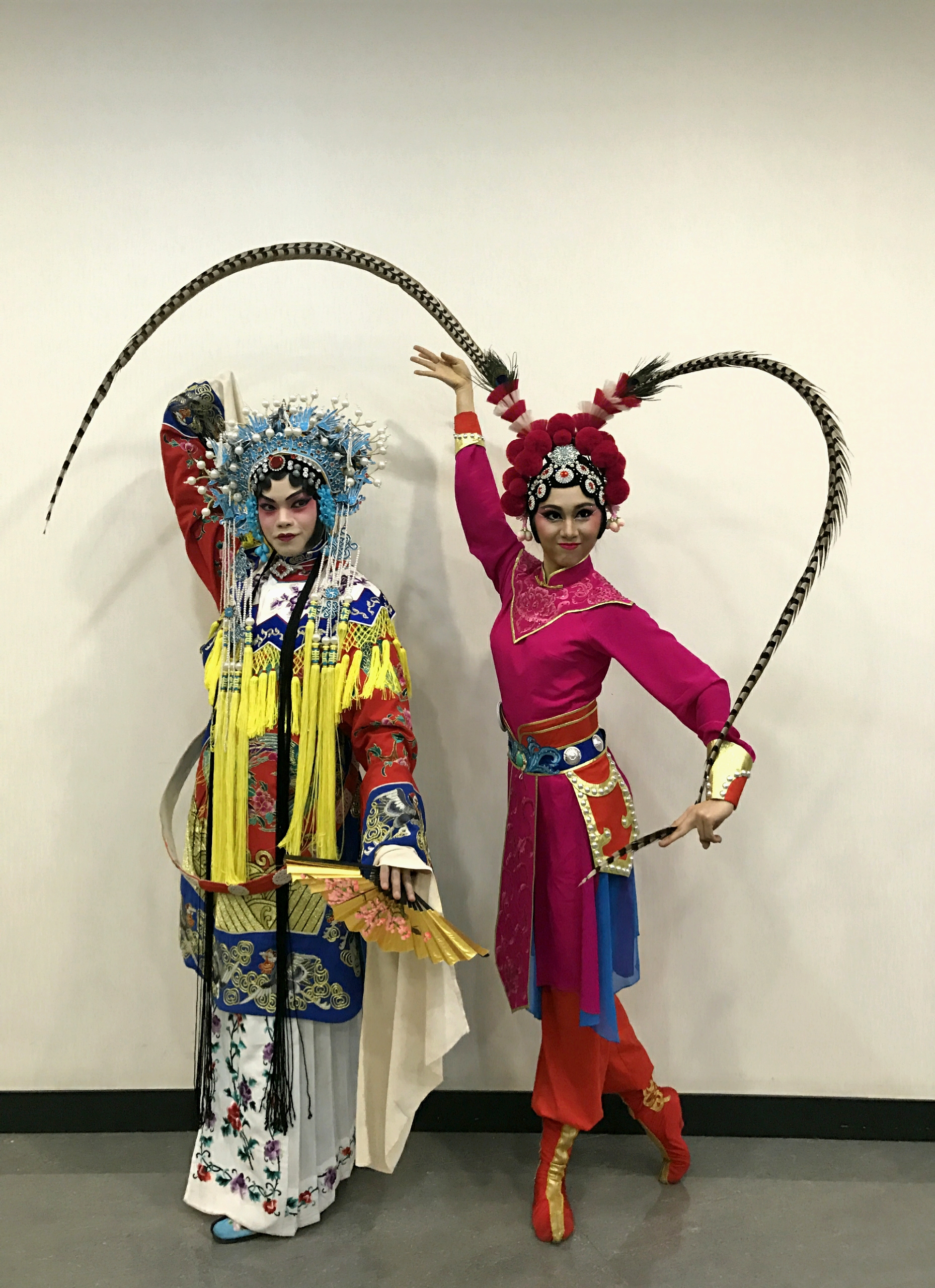
Lim Jia Yi, 20
Chinese Ethnic & Folk Dance, Beijing Dance Academy
Q How did Singapore prepare you for China?
A I feel that Singapore has prepared us best in being proficiently bilingual since young.
Not only can we communicate well with the locals; we can also bridge friendships between the East and the West.
As one of the rare few bilingual speakers in my school, I was given many opportunities to host, translate and volunteer in various international dance events.
Q What do you miss the most about Singapore?
A Having studied in Beijing for five years, the thing I miss most about Singapore is surprisingly, the weather!
Though I used to complain about how hot and humid it was at home, the long winters in Beijing always freeze my senses and make me wish that I could teleport home immediately.
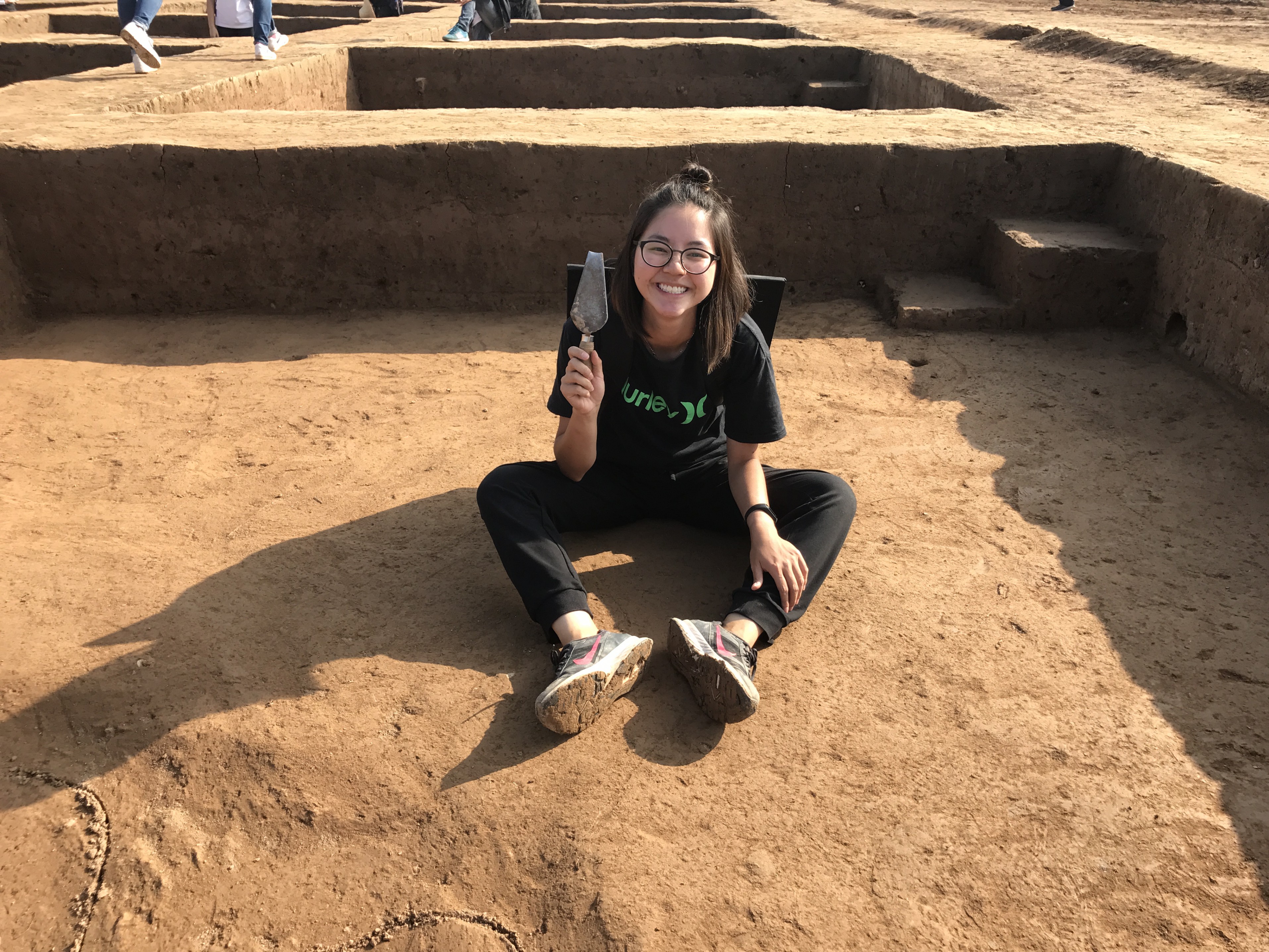
Melody Tan YanZhen, 21
Archaeology, Peking University
Q How did Singapore prepare you for China?
A Learning the Chinese language since young gave me an advantage among other international students. However, I will never be fully ready. Even till now, China is surprising me in many ways.
Q What do you miss the most about Singapore?
A I miss everything about Singapore. I am currently on my Archaeology Internship in a small rural town in Shaanxi, Baoji.
The internship has reminded me to appreciate the constant water supply and electricity, fast internet, the convenience of going to a market and getting a meal and so on, that I had in Singapore.
Other than that, I also miss my family and friends back in Singapore. While I am having a lot of fun here, there are always events that I will miss out on.
However, I love the simplicity and convenience that China provides with its advanced electronic payment system, food delivery as well as its transport system, allowing a student like me to be able to get around easily with my dian dong (battery-operated motorcycle).

Charles Tay, 29
Masters in Law (LLM), Peking University
Q How did Singapore prepare you for China?
A Singaporeans' spirit of excellence!
There are so many outstanding Singaporeans here in Beijing and I think that one thing that sets us apart from other internationals here is that every one of us is extremely bright and capable.
I constantly can't shake the feeling that our background in Singapore has something to do with this.
Q What do you miss the most about Singapore?
A Singaporean food. There is a Chinese saying that is said at the end of meals served to visitors. Hosts will ask "chi de bao ma?" ("Are you full?") but not "chi de hao ma?" ("Have you eaten well?") because it should, in human experience, be only possible to truly eat well at one's own home.
That said, the food here is pretty good too. Chinese food has immense variety and tastes. One never gets bored here.
GERMANY
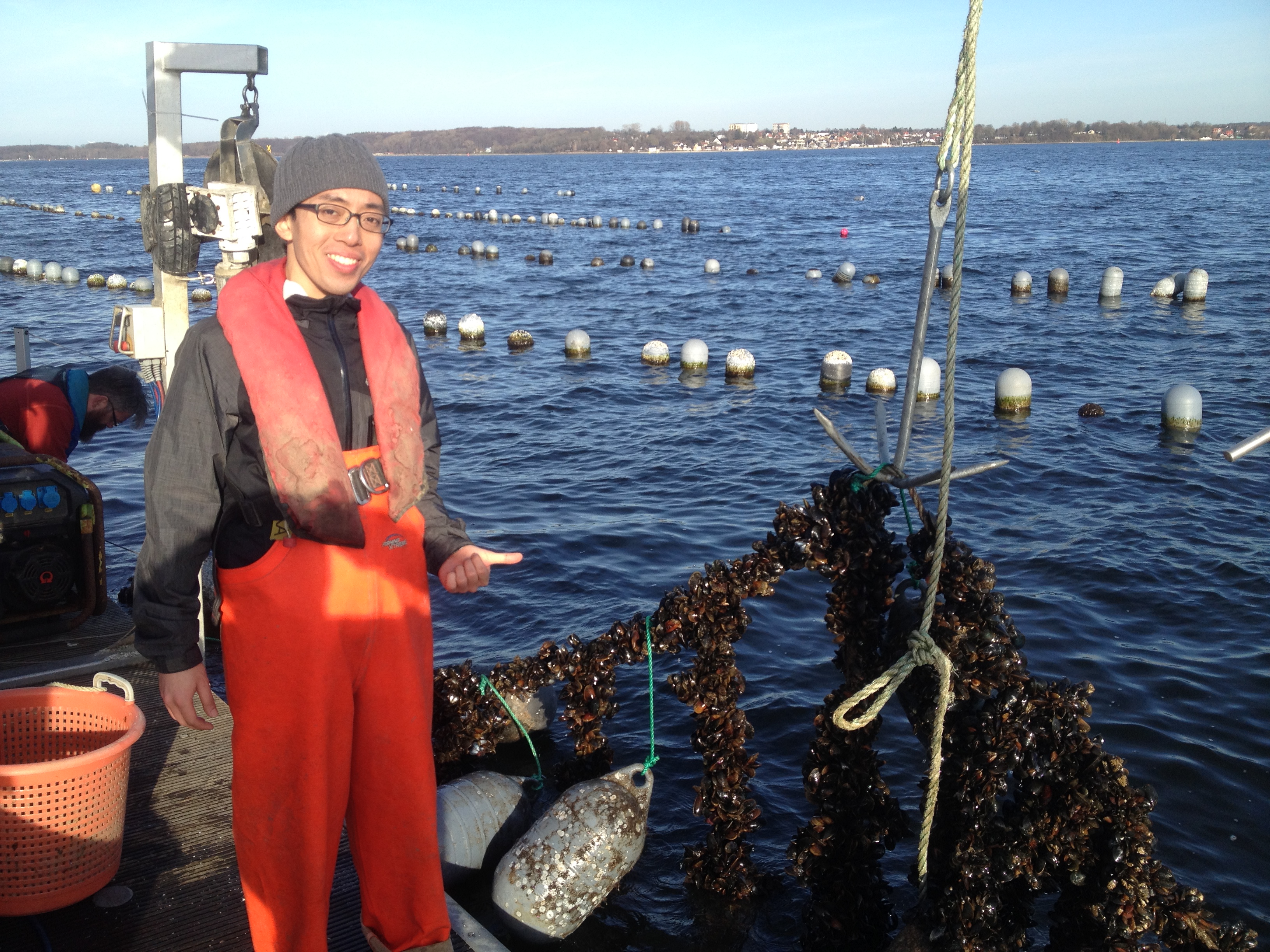
Simeon Choo Enyi, 28
Masters in Biological Oceanography, GEOMAR Helmholtz Centre for Ocean Research Kiel
Q How did Singapore prepare you for Germany?
A Before leaving Singapore to pursue my postgraduate studies, I worked in a multinational digital agency for two years. The fact that the team I worked with was so culturally diverse (13 of us from 10 nations), taught me how to interact expertly and be comfortable in an international environment.
It also helped that my family was very supportive of my dream to pursue a calling in marine science, and that bestowed me with the confidence to give my all in my studies here.
Q What do you miss the most about Singapore?
A I do think about my family and friends all the time, and they definitely have a special place in my heart. At times, I feel sad that I am not so involved in their lives, especially when one of them needs moral support.
This might sound funny, but I certainly miss our thoughtful smokers and the designated smoking points we have all over Singapore. There were a number of times here in Germany where cigarette smoke would be directed at my face at public spots. The level of awareness of considerate smoking here is not as high.
JAPAN
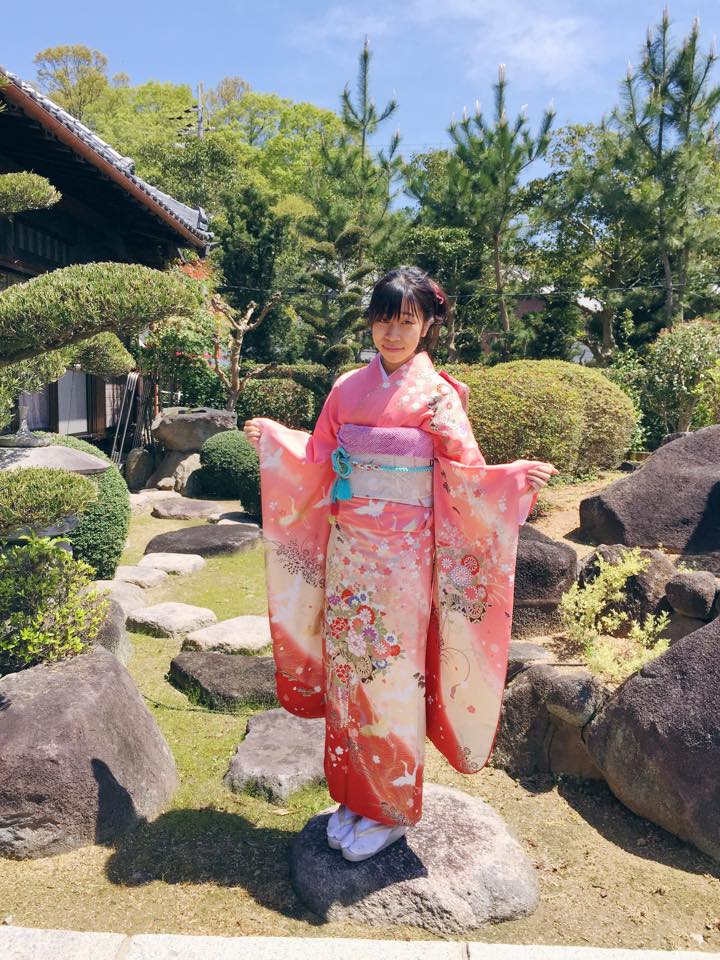
Cheryl Mui, 22
School of International Liberal Studies, Waseda University
Q How did Singapore prepare you for Japan?
A Coming from Singapore alone is already a great conversation starter - it usually starts with a reference to the Merlion or 'that ship on top of a building', and the ball just gets rolling from there.
Many Japanese people know about Singapore, and often want to know more about the bilingual education or the tropical weather. It's definitely helped me make friends with locals in Japan!
Q What do you miss the most about Singapore?
A Much of my conversations in Japanese are structured in the obligatory polite language, and I miss being able to freely speak in Singlish.
Using honorifics is an important part of communicating in Japan, which is fascinating but very different from the casual speech I'm used to back home.
When I meet and talk with my fellow Singaporeans it feels like stretching out in bed after a long day of work.
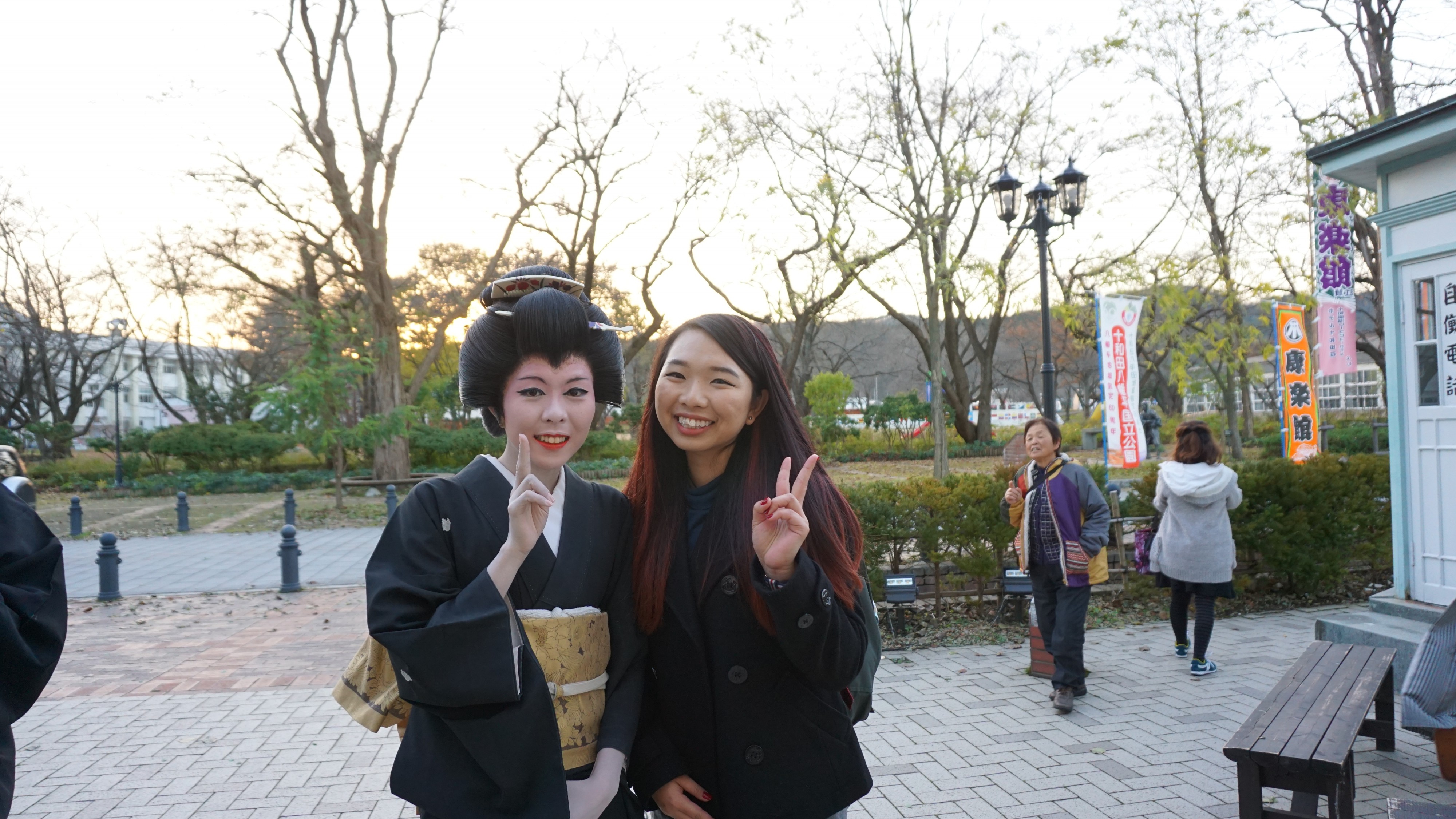
Germaine Lau Gek Khin, 23
Masters in Marine Life Sciences, Tokyo University of Marine Science and Technology
Q How did Singapore prepare you for Japan?
A I would say the mentality of being prepared for adverse situations (or the Singaporean kiasu attitude, for lack of a better description) greatly aided in my daily life in Japan.
Japan is well known for its fair share of natural disasters. I have lived in Sendai for the last four years, where the 2011 earthquake and tsunami hit the hardest.
Having the mentality of being prepared helped me to anticipate and prepare myself should another big earthquake occur. (The 9.0 magnitude earthquake in 2011 would generally trigger other large aftershocks in a span of 10 years or so.)
Thankfully I didn't experience a 7.0 or 8.0 magnitude earthquake, though I have had my fair share of earthquakes.
Q What do you miss the most about Singapore?
A I miss being able to getting my beef noodle fix or just a midnight supper with friends at one or two in the morning. In Japan, most of the shops and restaurants close at 10pm.
If I am craving anything at that time, there isn't many options except to go to a Japanese Izakaya (where groups of friends or colleagues go for drinks) or to cook my own meal.
Both remind me of how convenient suppers in Singapore are and how I can easily gather a group of friends willing to eat, talk and enjoy each other's company.
Even though I've made chicken rice and bak kut teh to satisfy my cravings, it just doesn't compare to the ones I remember from home.
Kiyomi Takayama, 20
Liberal Arts, International Christian University
Takayama-san was born in Singapore to a Singaporean mother and a Japanese father.
Q How did Singapore prepare you for Japan?
A Back in Singapore, there was private school for Japanese students on Saturdays which I used to attend.
I took Japanese as my mother tongue and attended lessons at a language centre to improve my Japanese. I met both Singaporean and Japanese students and made friends with them.
The curriculum also allowed me to learn about Japanese culture. There were also events and exchange programs held for us to get to know more about Japan, like playing traditional Japanese games, along with talks by scholars that studied in Japanese universities.
Q What do you miss the most about Singapore?
A The food! The first dish I ate in Japan that reminded me of Singapore was naan. It reminded me of roti prata, which used to be my Sunday breakfast with my family back in Singapore.
Topping it up with curry is the best to me. And talking about curry: I remember watching a documentary that talked about how each race in Singapore prepares their curry differently, each suited to their ability to withstand spiciness. I just love Singapore for its uniqueness that I know so well.
AUSTRALIA
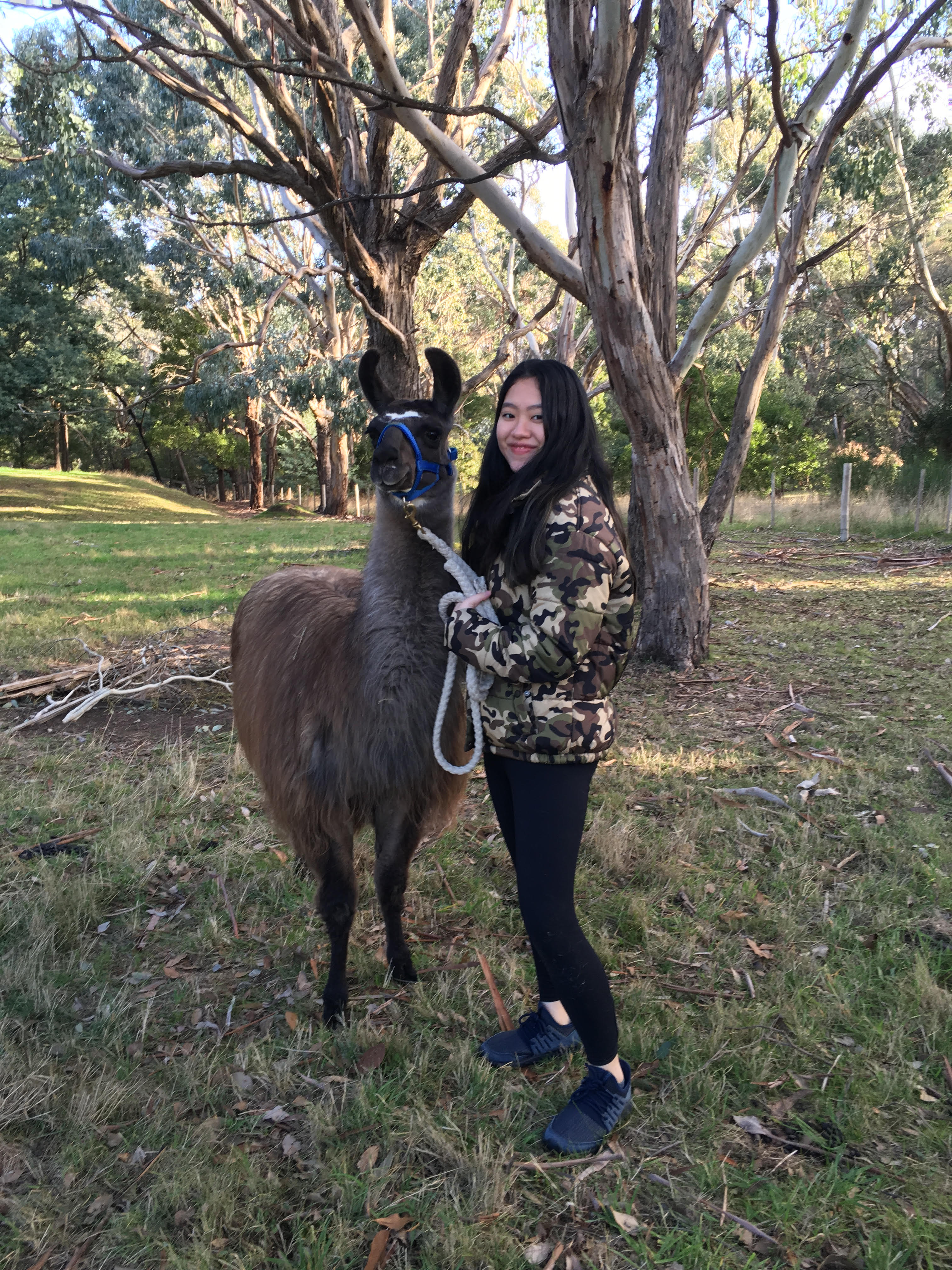
Faye Leck, 21
Bachelor of Arts, Monash University
Q How did Singapore prepare you for Australia?
A The kiasu mentality that has been passed down for generations before us has definitely paid off.
Studying abroad alone, I have to look out for myself and I find this kiasu mentality has helped me stay one step ahead.
Also, having grown up in a multiracial society, I have no problem living with people of different races and religions. It makes it easier to make friends in and out of university.
Having English as our first language helps too!
Q What do you miss the most about Singapore?
A The food! We often take for granted the amazing and affordable food we have in our country.
I would kill to find a hawker centre or Kopitiam in Melbourne. Even when you do find a restaurant that serves carrot cake, kway chap or chicken rice, it's never as good as the ones back home.
Of course, I also miss my family and friends in Singapore. However, with FaceTime and Skype and the proper support system in Melbourne, the cure for homesickness is just a call away.
UNITED KINGDOM
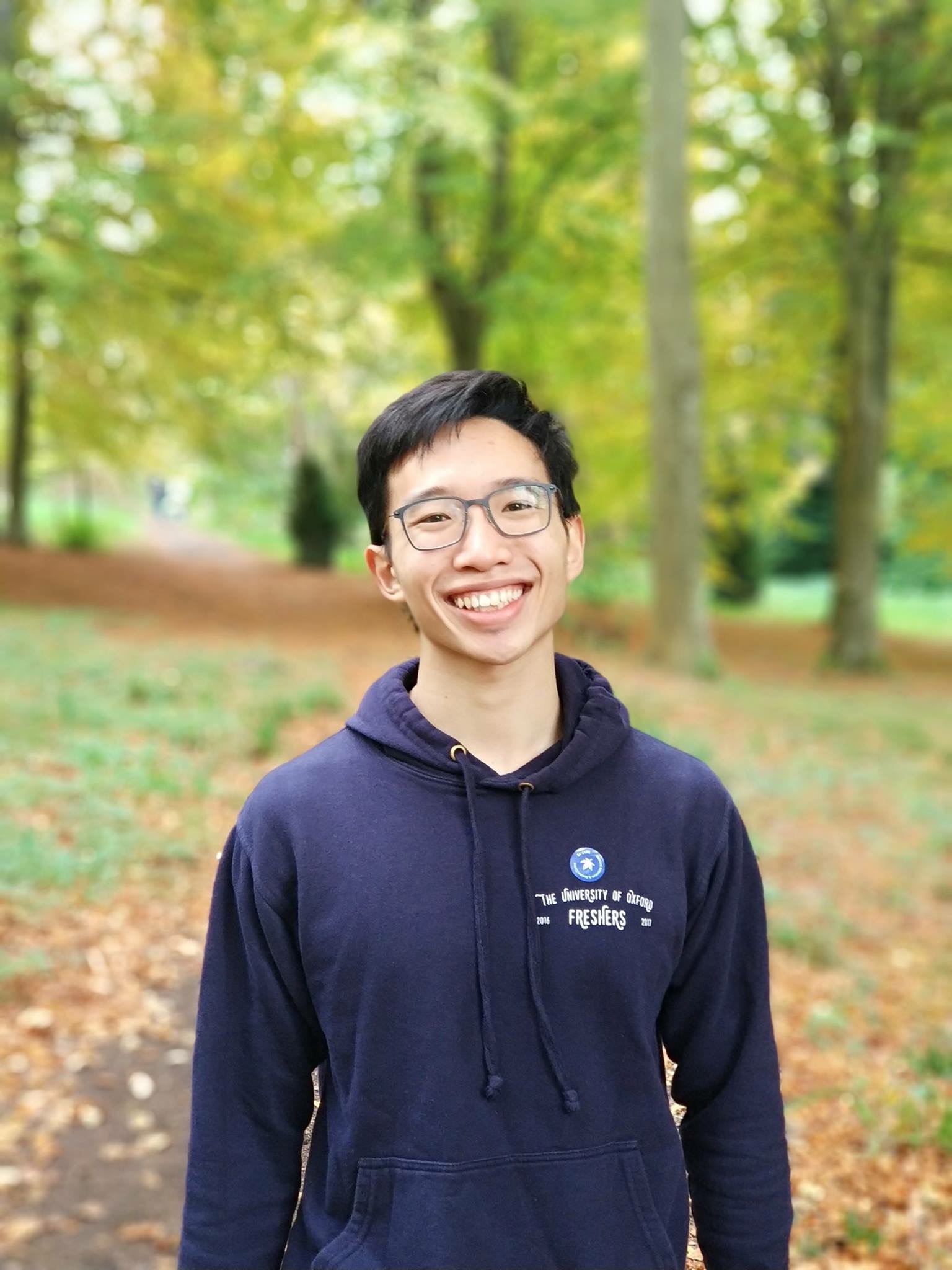
Jefri Ho, 22
Geography, St Peter's College, University of Oxford
Q How did Singapore prepare you for the UK?
A As a student, my education in Singapore prepared me for the UK by teaching me to constantly push yourself out of your comfort zone, to not be afraid to ask questions, and to develop original, innovative and insightful solutions.
More importantly, however, growing up in Singapore has taught what it means to actually live in a foreign country like the UK.
Beyond cooking and chores, my family and friends taught me to be responsible and principled, as well as to treat others with courtesy and compassion.
Most of all, living in Singapore has taught me to constantly strive for improvement, and to be a better student, friend and person with each day.
Q What do you miss the most about Singapore?
A Aside from the food and public transport, I miss my family and friends.
When I come back to Singapore, meeting up with old and new friends is almost magical, in how no time seems to have passed since you last met.
When I come home and see my family, nothing compares to the feeling of them asking you how you are, turning on your room lights when you come home late, sharing meals with you, and doing much more.
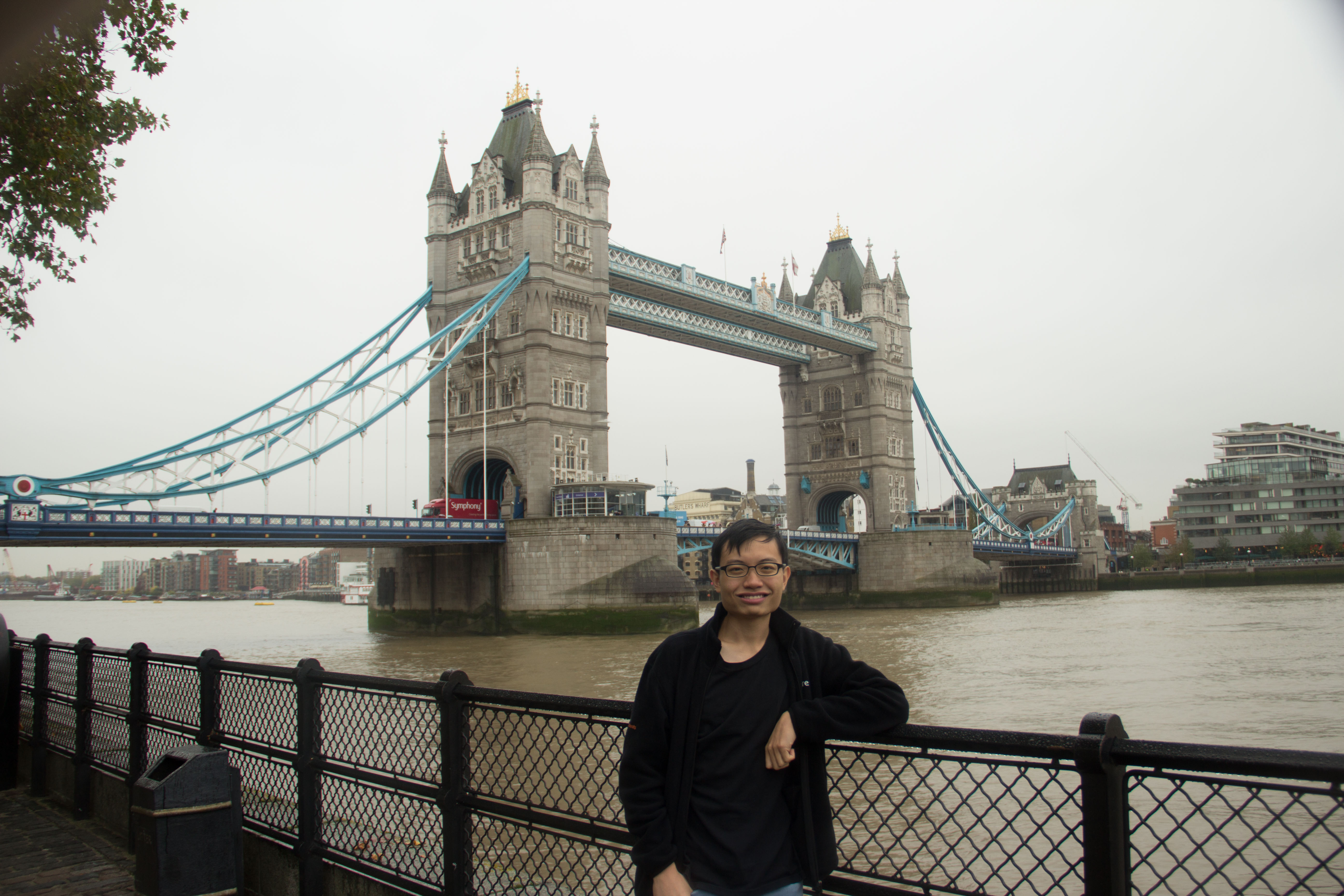
Foong Zhi Yu, 21
Aeronautical Engineering, Imperial College London
Q How did Singapore prepare you for the UK?
A For one, I would never be able to take this huge step without the emotional support from my family and friends.
My friends are fellow Singaporeans from all walks of life who crossed paths with me through school, community service or even National Service. They, along with my family, are the reason I would want to stay in Singapore, for this is where my roots are and where I find warmth.
Compulsory bilingualism also proved to be very useful. This aided me in communicating with the international pool of students.
Not only could I connect in English, but I could also talk to those who speak Mandarin. You can feel their sudden change in familiarity when you speak Mandarin to them.
Not only could I connect in English, but I could also talk to those who speak Mandarin. You can feel their sudden change in familiarity when you speak Mandarin to them.
Q What do you miss the most about Singapore?
A The thing about social media nowadays is that it connects you to Singapore even though you are 11000 km away, but there comes a catch.
When you watch your friends' Instagram stories and they post mouth-watering food they are eating in Singapore, that's not good.
When you watch your friends' Instagram stories and they post mouth-watering food they are eating in Singapore, that's not good.
That is probably the most common reason any overseas Singaporean misses home, and I am proud to say that I am one of them.
Yet, above all, it is really the little things that I truly miss, the ones I am guilty of taking for granted.
The sight of kids from different races playing a game of blind mice at the playground together; the pungent smell of fresh fish wafting out from the nearby wet market; the clanking of cups at the coffee shop, drowned out by the shouts of the auntie calling out "Kopi-o"; the taste of sambal chilli that goes so well with many foods and most of all, the warmth of waking up to a hug from my family.
yipsjk@sph.com.sg

